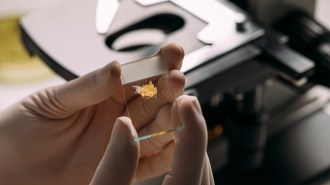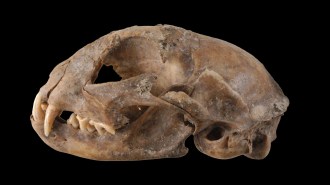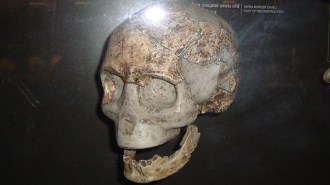Researchers edit genes in human embryos for second time
Researchers in China have edited the genes of human embryos to make cells resistant to HIV infection. It’s the second reported case of using molecular scissors called CRISPR/Cas9 to alter genes in human embryos.
In the new work, published April 6 in the Journal of Assisted Reproduction and Genetics, the researchers snipped a gene called CCR5 to introduce a mutation that prevents HIV from entering cells. Just as in the first report, the researchers used embryos that have three copies of each chromosome and would not grow into a baby if implanted in a uterus.
Few embryos in the study were altered in the desired way. Even embryos that contained the intended HIV-blocking mutation in one copy of CCR5 either had normal DNA or an unintended mutation in other copies of the gene. The study “demonstrates that significant technical issues remain to be addressed,” Yong Fan of Guangzhou Medical University and colleagues conclude.
“Germline editing” — genetic modification of human cells, including embryos, eggs and sperm, that can be passed to future generations — has been controversial. Because these embryos are not viable, the gene alteration would not be considered germline editing according to guidelines issued after an international summit in December.






